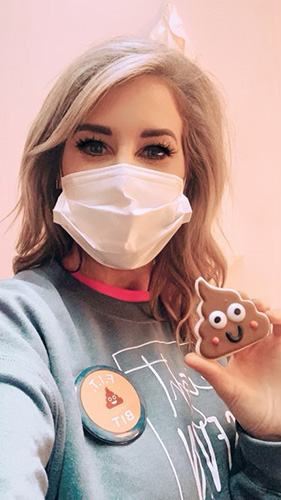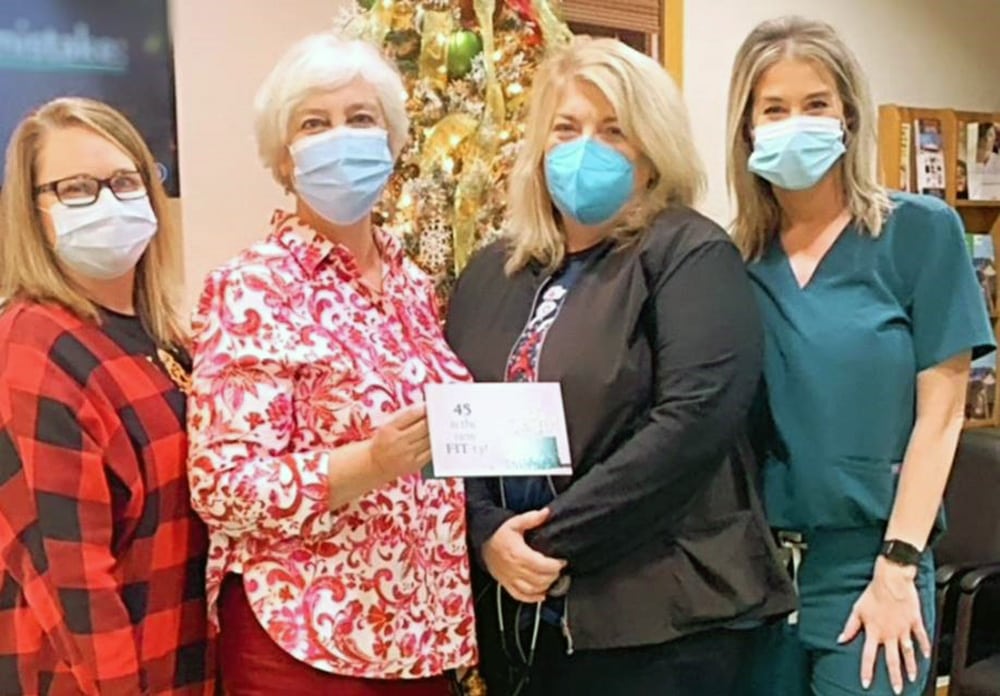Department of Family & Preventive Medicine’s Colorectal Screening Project Sees Progress in First Year
| Colorectal cancer screening rates jumped by almost 8% in northeast Arkansas clinics that partnered with the University of Arkansas for Medical Sciences (UAMS) during the first year of a five-year project to increase screening in the state.
The Partnerships in Colorectal Cancer Screening (PiCS-AR!) is a project of the UAMS Department of Family and Preventive Medicine’s Community Health and Education Division. In 2020, the division received a $2.5 million grant from the Centers for Disease Control and Prevention to carry out the project.
Since then, its first clinic partner, 1st Choice Healthcare, exceeded its initial screening goals in five out of six clinics it operates in Salem, Pocahontas, Paragould, Corning and Ash Flat. The provider’s screening rate was 37% a year ago, and most of the clinics now hover in the mid-40s, with the Pocahontas clinic making the biggest jump, from 29% to 45% in one year.

Denise Boyer, RN, a patient navigator for 1st Choice Healthcare clinics in Ash Flat and Salem, displays her “Fit Just Takes a Bit” button that clinic staff wore to initiate patient conversations about colorectal screening, and a cookie shared during an educational activity on stool-based screening.
The project targets primary care clinics, especially in counties with low screening rates and low average household incomes. It works directly with providers to teach them best practices and help them implement techniques for increasing screening in their clinics.
Since September of 2020, UAMS and the Arkansas Foundation for Medical Care (AFMC) have coached patient navigators at the clinics. The navigators – experienced registered nurses who educate patients about the risk of developing colon cancer and explain screening options – are credited for making a noticeable impact on screening rates in a short period of time.
“More and more conversations between providers and patients are happening about the importance of colorectal screenings,” said Alysia Dubriske, M.Ed., director of the Community Health and Education Division. “Not only is that an objective of the project, but it’s also the first step in preventing late-stage colon cancer.”
She said provider reminders and chart alerts in the clinics’ electronic health system also worked particularly well, noting, “When patients visited, the clinic staff would check to see if they were due for a screening, and set up appointments for those who were.”
Dubriske said new partners likely will be identified in the third or fourth quarter of the project’s second year, which wraps up in June 2022.
“Screening for colorectal cancer is extremely important in that it is one of the few measures that can prevent cancer from developing,” said Jonathan Laryea, M.D., chief of the Division of Colon and Rectal Surgery at the UAMS Winthrop P. Rockefeller Cancer Institute. “There are very few cancers that can be prevented that way. Not only does it prevent cancer, but it allows cancer to be identified at an early stage, which improves survival and also prevents the complications of cancer.”
A colonoscopy is the clearest, most complete screening, but another option is an at-home screening test that is designed to detect DNA abnormalities or blood in the stool, both of which could be indicators of colon cancer or precancerous conditions.
“The best colorectal cancer screening test is the one that patients are most likely to complete,” said Marybeth Curtis, RN and program manager for the PiCS-AR! Campaign, quoting a senior health analyst at the Mayo Clinic.
“I love that quote,” she said. “Forty-six percent of colorectal cancer deaths in the United States are a result of missed screening opportunities. Patient adherence to screening is the key.”
Curtis said one goal of the grant project is to educate providers and patients that stool-based tests are an effective, low-cost alternative to colonoscopies in screening average-risk patients for colorectal cancer.
She noted that stool-based tests are actually preferred by patients, “which leads to improved follow-up in completing their screening.”
“Screening is the best way to beat colorectal cancer,” Laryea agreed. ”My best advice to all adults 45 years and older is, ‘Get your rear in gear and get screened.’”
“Ultimately, our goal is to reduce the amount of late-stage colorectal cancer in Arkansas and the number of colorectal cancer deaths in Arkansas,” Dubriske said.
Nationwide, colorectal cancer is the second most common cause of cancer deaths for men and women combined and is expected to cause about 53,000 deaths during 2021, including 500 deaths in Arkansas, according to the American Cancer Society.
